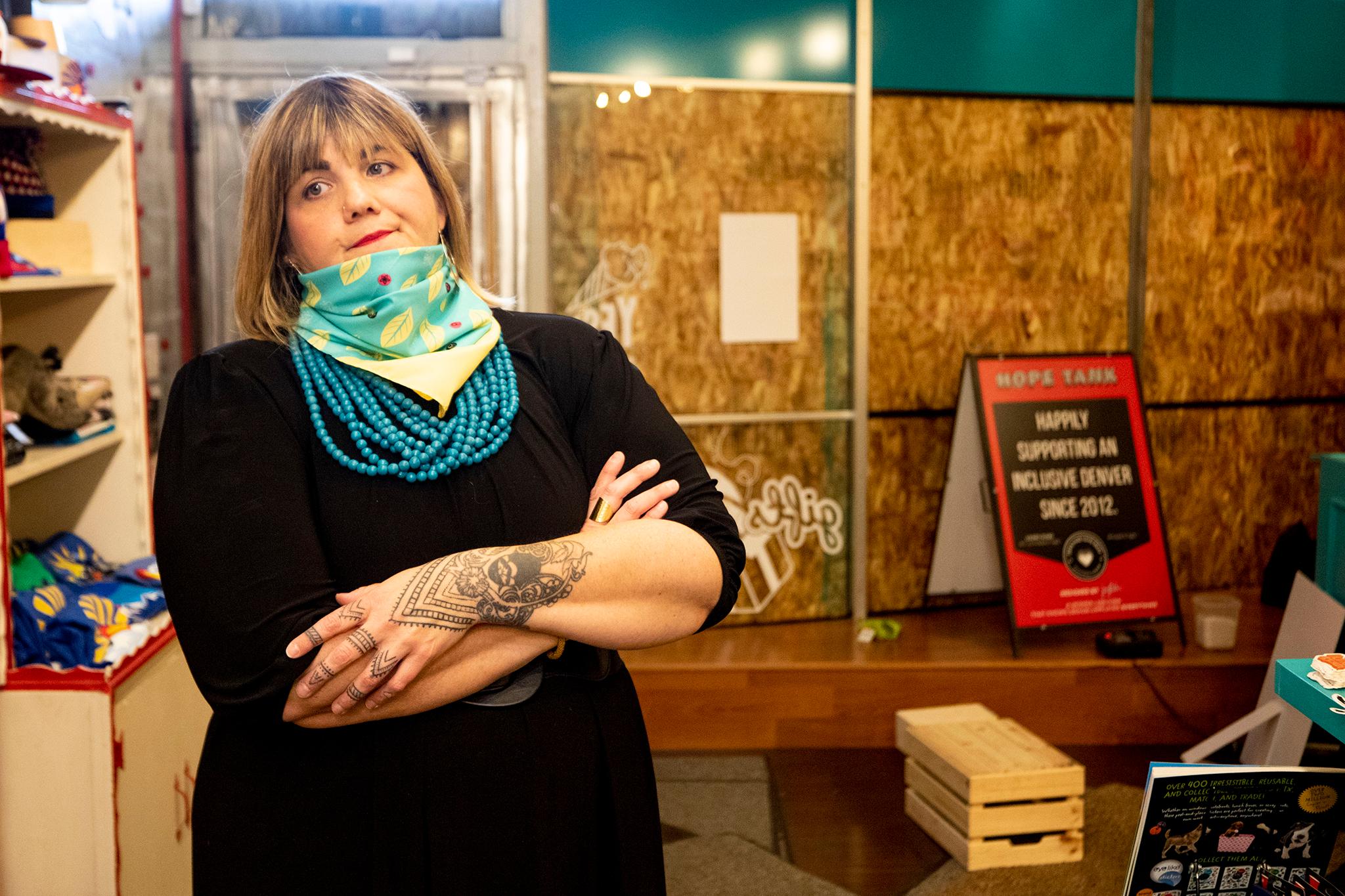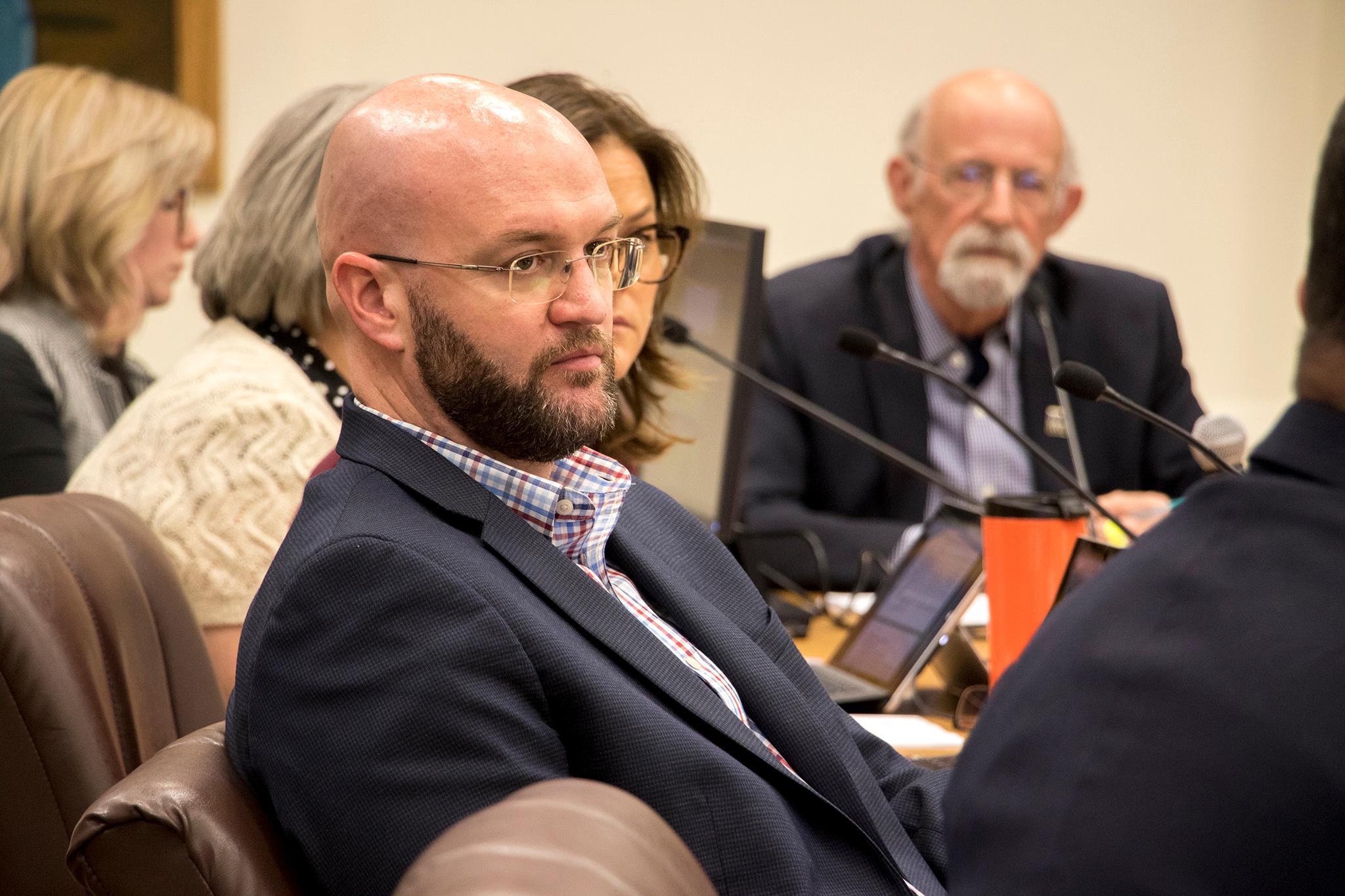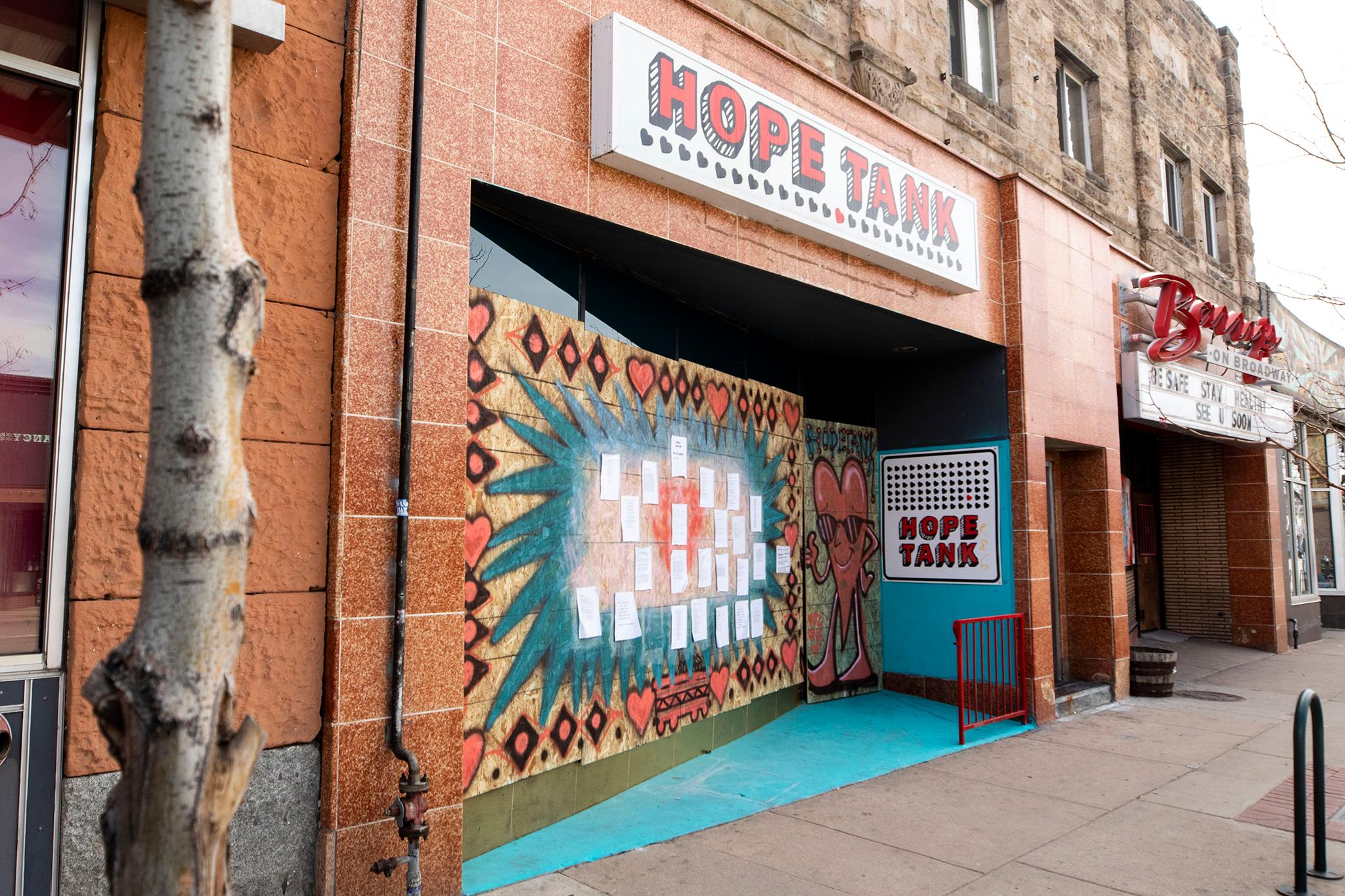When we contacted Denver City Councilman (and council president) Jolon Clark for our story on micro business rents on Broadway, he was kind of busy.
"The biggest thing for me - this has been devouring my life - is working to ensure we have an operational legislative branch of government," he said.
Clark told us council is trying to figure out how to keep things like emergency funds and simple contracts for city workers on the rails. He spent half of Thursday "frantically talking to attorneys" about what he and his colleagues can actually do to help residents and business owners: "And then I spent the other half of my day on the phone with people who are upset and distraught about how this is affecting their lives."
He did have time to talk on Friday, and we thought it might be appropriate to record his thoughts about the situation for shops near Alameda and Broadway, which is in his district.
Micro-business owners like Erika Righter, who runs Hope Tank, told us they're concerned the iconic strip might change forever as a result of COVID-19 closures. She and others were already dealing with rising rent, what she said described as "gentrification prices." She said continuing to pony up during a month or more of social isolation feels like throwing money into the trash. Many are not interested in debts that would come with emergency loans. Righter said she wanted to see the city do something - anything - to address the systemic issues that have become so much more obvious in this moment.


Clark agreed it would be "soul crushing" if the neighborhood suffers irreversible damage, and added that he was concerned about business' ability to survive there before the coronavirus crisis came into view.
"That is what makes our neighborhoods and Denver what it is," he said. "That's why my wife and I live where we live - access to Broadway and South Pearl Street."
But, like Mayor Hancock also told us this week, the city has no power to prohibit rent collections. State law bars the policy, though there have been efforts recently to change that. Still, it's a question city councilors have faced over and over as market pressures continue to push some out of the city.
In a town hall meeting about higher citywide minimum wage last year, Councilwoman Robin Kniech fielded question after question about housing prices. Her answer: we don't have the power.
So that's the situation Clark finds himself in as business owners like Righter struggle to make sense of the reality that nobody can enter stores on Broadway.
"There are lots of people yelling at us right now about rent freezes and mortgage freezes and we are desperately working around the clock to find ways to what can a local government do during a global disaster," he said.
Clark pointed to an emergency coffer he and his colleagues have helped fill that's offering $7,500 grants to businesses. On Broadway, though, rent can cost as much as $10,000 a month.
While he said he can't do a whole lot to force landlords to work with their tenants, he can help direct small-business owners toward resources like the fund or federal loan programs. He also said council representatives can communicate their concerns up the ladder to state representatives or the governor, if they have that kind of relationship.
Clark said state reps like House Majority Leader Alec Garnett will likely pick up a phone call from him. It's not the same with Gov. Polis: "That's not somebody I have direct access to."
Still, he said Mayor Hancock speaks to Polis regularly. As for the state legislature, they're on a "historic pause."













